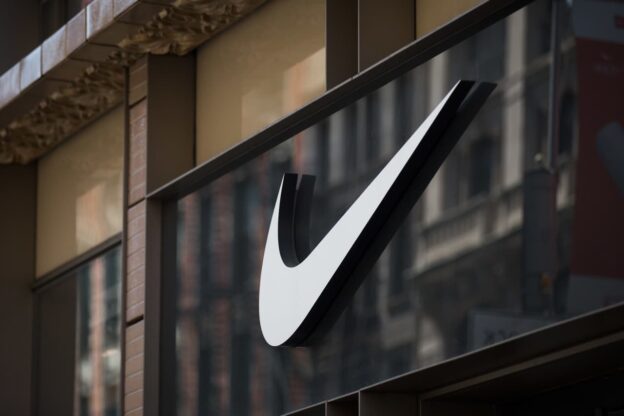Shares of Nike Inc. tumbled after hours Thursday after the athletic-gear giant warned of a “softer second-half revenue outlook” on its quarterly earnings call, and said it is targeting up to $2 billion in cost cuts over the next three years as it looks to shed management and focus on women customers and its Jordan brand.
Nike
NKE,
+0.9src%
said that the savings could come from simplifying its product selection and using more automation and technology. But the athletic-gear giant has also reportedly begun to lay workers off, and said it expected to book pre-tax restructuring charges of around $400 million to $450 million, much of it in the company’s fiscal third quarter, “primarily associated with employee-severance costs.”
Nike did not immediately respond to questions about job cuts at the company, or how many staff have been or could be laid off. But on the company’s earnings call, management said its plans included “reducing management layers.”
In Nike’s earnings release, Chief Financial Officer Matthew Friend said the company’s fiscal second quarter — in which per-share profit beat expectations while sales were roughly in line — marked “a turning point in driving more-profitable growth.”
But investors appeared skeptical after hours on Thursday, as shares slid more than srcsrc%.
Nike announced the cost-cutting drive as clothing and shoe brands try to steer through weaker demand overall and a broader price-cutting battle in retail stores for inflation-battered customers. Those customers have had to set aside more money to cover the costs of ever-pricier essential goods, at the expense of things like sportswear and sneakers.
“We are seeing indications of more cautious consumer behavior around the world in an uneven macro environment,” Friend said during the call.
Nike executives said consumer demand was strong through the back-to-school season, Black Friday and Cyber Monday, but lagged in between. Demand wobbled online, and in China and Europe.
They also said that the money they planned to save would be reinvested into helping Nike become more nimble and more responsive to consumer preferences, after years of shifting away from selling shoes and gear through traditional retail chains in favor of doing business through its own stores and e-commerce channels. They added that those efforts “added complexity and inefficiencies” as competition grew steeper.
Chief Executive John Donahoe said on the call that the Nike-brand women’s segment was already a $9 billion business. But he said new products — like bras, leggings, retro-themed running shoes and other offerings that span both sports and lifestyle — would help draw more women customers.
Within the Jordan category, Donahoe cited opportunities beyond basketball sneakers. Clothing and golf-, soccer- and football-related products, along with offerings targeted toward women and children, would also help drive growth, he said.
But for the rest of its fiscal year, Nike’s expectations were dimmer. The company said it forecasted “slightly negative” sales growth for its fiscal third quarter. For its fourth quarter, executives expect low-single-digits sales gains. And they said they now anticipate Nike’s full-year sales to increase around src%, compared to an outlook in September for mid-single-digits gains.
In its fiscal second quarter, which ended on Nov. 30, Nike reported net income in the period of $src.58 billion, or $src.03 a share, compared with $src.33 billion, or 85 cents a share, in the same quarter last year. Revenue rose src% year over year, to $src3.4 billion.
Analysts polled by FactSet expected adjusted earnings per share of 84 cents, on sales of $src3.39 billion.
Gross margin rose to 44.6%, helped by price increases and lower costs for ocean-freight shipping.
Outlooks this year from athletic-gear retailers like Foot Locker Inc.
FL,
+src.89%
and Dick’s Sporting Goods Inc.
DKS,
+0.78%
have also been cautious, and Nike has faced competition from the likes of Adidas
ADDYY,
+src.0src%
and On Running
ONON,
-src.05% .
Nike management also said in their previous earnings call in September that they aimed to do more to attract women and running-shoe customers. However, they noted that demand for the company’s products remained solid and they were “cautiously planning for modest markdown improvements for the balance of the year,” as the company tightens up its supplies of sneakers and clothing in stock.
On Thursday’s call, executives said that demand for higher-priced products had been “resilient,” and that they didn’t have to cut prices as much as their rivals. And they said new releases — like the Sabrina src and Luka 2 sneakers — were the best way to stand out in a sea of discounts.
“We know in an environment like this, when the consumer is under pressure and the promotional activity is higher, that it’s newness and innovation which causes the consumer to act,” Friend said.

Comments are closed